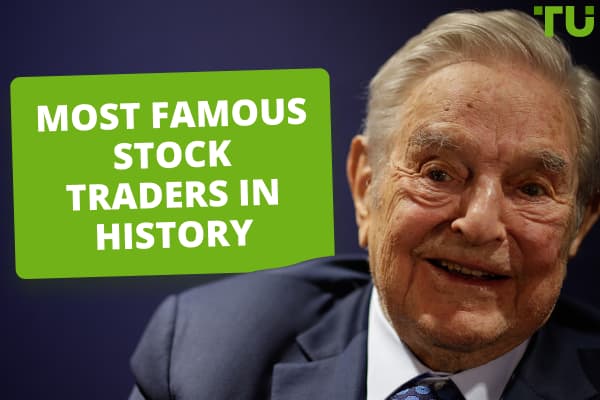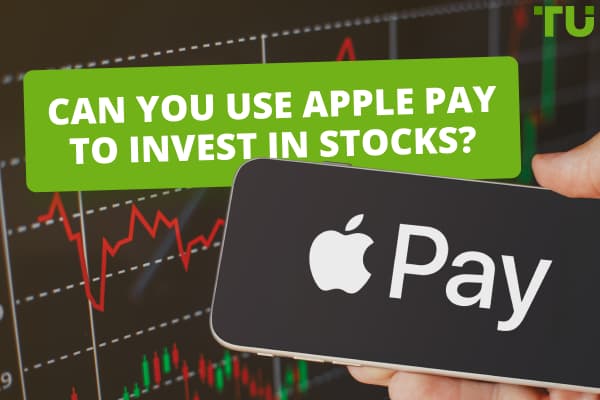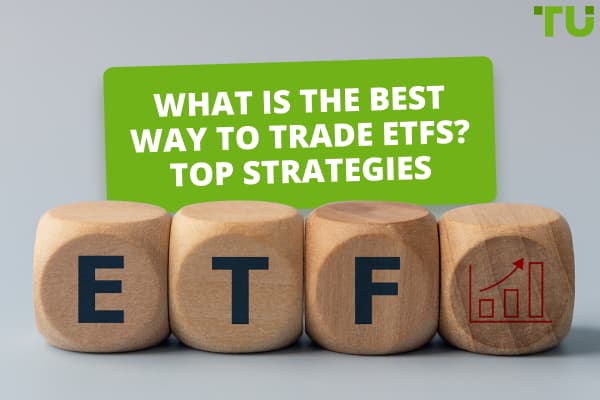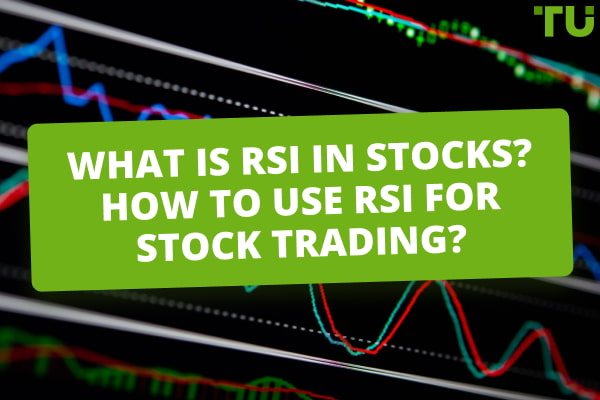Top 8 EV ETFs To Invest In 2024
The best Electric Vehicles (EV) ETFs To Invest are:
-
1
Global X Autonomous & Electric Vehicles ETF
-
2
First Trust NASDAQ Clean Edge Green Energy Index Fund
-
3
iShares Global Clean Energy ETF
-
4
Invesco WilderHill Clean Energy ETF
-
5
KraneShares Electric Vehicles & Future Mobility ETF
-
6
SPDR S&P Kensho Clean Power ETF
-
7
VanEck Vectors Low Carbon Energy ETF
-
8
Global X Lithium & Battery Tech ETF
Investing in electric vehicles (EV) is an increasingly attractive option for many investors. As the EV industry continues to grow, ETFs provide a convenient way to invest in this sector.
In this article, we will explore the top 8 EV ETFs to buy right now and how to choose a sustainable automobile industry ETF. We will also discuss whether investing in EV ETFs now is a good idea and whether these stocks are profitable investments.
Start investing in ETFs now with eToro!Key takeaways
-
Electric Vehicles ETFs provide exposure to companies in the sustainable auto industry, including manufacturers of electric vehicles and related components, as well as companies researching and developing EV technologies.
-
Investing in EV ETFs offers diversification by investing in different companies and sectors within the sustainable auto industry.
-
EV ETFs have shown strong performance in recent years due to the increasing demand for electric vehicles.
-
When considering investing in EV ETFs, investors should consider factors such as expense ratios, holdings and diversification, management team expertise, fund size and liquidity, and tracking error.
What is an Electric Vehicles ETF?
An Electric Vehicles ETF is an exchange-traded fund that offers investors exposure to companies involved in the sustainable auto industry. These ETFs focus on companies that manufacture electric vehicles (EVs) and related components, and hold stocks of companies that are involved in the production of EV components. ETFs may also include investments in companies that are researching and developing technologies related to electric vehicles, such as batteries and charging infrastructure.
Investing in an EV ETF (usually through ETF brokers) gives investors access to a basket of stocks that are focused on the sustainable auto industry, while also providing diversification by investing in different companies and sectors. EV ETFs can also provide investors with the opportunity to benefit from the long-term ETF investing due to the growth potential of the sustainable auto industry, as more countries and consumers transition to electric vehicles.
Top 8 EV ETFs to invest in right now
| Ticker | Expense ratio | AUM | Dividend yield | Top holdings | |
|---|---|---|---|---|---|
Global X Autonomous & Electric Vehicles ETF |
DRIV |
0.68% |
$2.57B |
0.27% |
Tesla Inc (7.62%), Alphabet Inc (6.23%), NVIDIA Corp (4.86%), NIO Inc (4.60%), Baidu Inc (4.57%) |
First Trust NASDAQ Clean Edge Green Energy Index Fund |
QCLN |
0.60% |
$4.46B |
0.17% |
Tesla Inc (9.01%), Enphase Energy Inc (5.80%), Plug Power Inc (4.17%), Sunrun Inc (4.07%), Albemarle Corp (3.90%) |
iShares Global Clean Energy ETF |
ICLN |
0.46% |
$8.54B |
0.43% |
Enphase Energy Inc (6.14%), Plug Power Inc (5.30%), SolarEdge Technologies Inc (5.00%), Xinyi Solar Holdings Ltd (4.86%), First Solar Inc (4.84%) |
Invesco WilderHill Clean Energy ETF |
PBW |
0.70% |
$5.08B |
0.29% |
Enphase Energy Inc (6.46%), Tesla Inc (5.99%), Plug Power Inc (4.68%), Sunrun Inc (4.59%), Albemarle Corp (4.10%) |
KraneShares Electric Vehicles & Future Mobility ETF |
KARS |
0.70% |
$2.22B |
0.10% |
Tesla Inc (12.35%), BYD Co Ltd (7.03%), NIO Inc (6.05%), Xpeng Inc (4.40%), Alphabet Inc (4.22%) |
SPDR S&P Kensho Clean Power ETF |
CNRG |
0.45% |
$1.01B |
0.21% |
Sunrun Inc (7.01%), Enphase Energy Inc (5.81%), Plug Power Inc (5.60%), SolarEdge Technologies Inc (4.91%), Albemarle Corp (4.54%) |
VanEck Vectors Low Carbon Energy ETF |
SMOG |
0.62% |
$1.47B |
0.66% |
First Solar Inc (8.44%), Enphase Energy Inc (5.81%), Albemarle Corp (5.32%), Sunrun Inc (5.16%), Xinyi Solar Holdings Ltd (4.50%) |
Global X Lithium & Battery Tech ETF |
LIT |
0.75% |
$4.77B |
0.47% |
Tesla Inc (14.12%), BYD Co Ltd (6.63%), Albemarle Corp (6.48%), LG Chem Ltd (5.44%), Samsung SDI Co Ltd (5.27%) |
All of these ETFs focus on investments in companies that are involved in electric vehicles, EV charging, and environmental, social, and governance (ESG) initiatives.
You also can be interested in information about the best eco friendly socks to invest.
Each ETF has its own unique features. Let’s explore each of those ETFs in more detail.
Do ETFs Pay Dividends?
The Global X Autonomous & Electric Vehicles ETF (DRIV) invests in companies involved in the development of autonomous vehicle technology, electric vehicles (EVs), and EV components and materials.
This includes companies involved in the development of autonomous vehicle software and hardware, as well as companies that produce EVs, EV components such as lithium batteries, and critical EV materials such as lithium and cobalt.
The Global X Autonomous & Electric Vehicles ETF has a management fee of 0.68% and assets under management of $760.14M
First Trust NASDAQ Clean Edge Green Energy Index Fund
The First Trust NASDAQ Clean Edge Green Energy Index Fund (QCLN) invests in companies involved in the clean energy sector, including renewable energy, energy efficiency, and advanced transportation.
QCLN has a management fee of 0.58% and assets under management of $1.395B
iShares Global Clean Energy ETF
The iShares Global Clean Energy ETF (ICLN) invests in global equities in the clean energy sector, including companies involved in solar, wind, and other renewable energy sources.
ICLN has a management fee of 0.41% and assets under management of $2.92B
Invesco WilderHill Clean Energy ETF
The Invesco WilderHill Clean Energy ETF (PBW) invests in companies involved in the advancement of cleaner energy and conservation. This includes companies involved in the production of alternative energy, such as solar and wind power, as well as companies that produce EVs and EV components such as lithium batteries.
PBW has a management fee of 0.62% and assets under management of $2.68B
KraneShares Electric Vehicles & Future Mobility ETF
The KraneShares Electric Vehicles & Future Mobility ETF (KARS) invests in companies engaged in the production of electric vehicles and/or their components, autonomous driving, shared mobility, lithium and/or copper production, lithium-ion/lead acid batteries, hydrogen fuel cell manufacturing, and electric infrastructure businesses.
KARS has a management fee of 0.70% and assets under management of $1.08B
SPDR S&P Kensho Clean Power ETF
The SPDR S&P Kensho Clean Power ETF (CNRG) invests in companies whose products and services are driving innovation behind clean power. This includes companies involved in the production of alternative energy, such as solar and wind power, as well as companies that produce EVs and EV components such as lithium batteries.
CNRG has a management fee of 0.45% and assets under management of $1.16B
VanEck Vectors Low Carbon Energy ETF
The VanEck Vectors Low Carbon Energy ETF (SMOG) invests in companies involved in the low carbon energy sector, including renewable energy, energy efficiency, and advanced transportation. SMOG has a management fee of 0.61% and assets under management of $172.06M
The fund's index tracks the performance of low carbon energy companies and the technologies that support these sources.
The index is a rules-based index intended to track the overall performance of renewable energy companies which may include, but is not limited to: wind, solar, hydro, hydrogen, bio-fuel or geothermal technology, lithium-ion batteries, electric vehicles and related equipment, waste-to-energy production, smart grid technologies, or building or industrial materials that reduce carbon emissions or energy consumption
Global X Lithium & Battery Tech ETF
The Global X Lithium & Battery Tech ETF (LIT) invests in global companies involved in the lithium industry, including companies involved in mining, refining, and producing lithium-ion batteries. LIT has a management fee of 0.75% and assets under management of $5.9B.
The fund invests at least 80% of its total assets in the securities of the underlying index and in American Depositary Receipts ("ADRs") and Global Depositary Receipts ("GDRs") based on the securities in the underlying index. The underlying index is designed to measure broad-based equity market performance of global companies involved in the lithium industry
How to choose a sustainable automobile industry ETF?
When selecting a sustainable automobile industry ETF to invest in for 2023, there are several key criteria to consider. These criteria should be weighed carefully before making any decisions:
-
Management fee. It is important to consider the fund's management fee, as this can impact the overall returns. Comparing the fees of different ETFs can help investors choose the most cost-effective option.
-
Assets. Assessing the size of the ETF's assets can provide insight into its popularity and potential liquidity. Larger assets may indicate a more established and stable fund.
-
Investment direction. Understanding the ETF's investment direction is crucial. Investors should consider if the fund focuses on electric vehicles, renewable energy, or other sustainable automotive sectors. Aligning the investment direction with personal values and goals is important.
-
Industry estimates. Reviewing industry estimates can provide valuable information about the growth potential of the sustainable automobile industry. Consider factors such as market projections, regulatory changes, and technological advancements that may impact the industry.
It is also important to consider the sustainability characteristics of the ETF. Many ETFs that invest in electric vehicles (EVs) have strong environmental, social, and governance (ESG) ratings, such as the MSCI ESG rating. Comparing and contrasting these ratings can help investors assess the sustainability aspects of different ETFs.
Additionally, assessing the fund's expenses is essential. High expenses can eat into the returns, so it is important to review the fund's expense ratio and any additional costs associated with the ETF.
Lastly, investors should review the fund's investment strategy and determine if it aligns with their goals. Understanding the fund's approach, such as active management or passive indexing, can help investors make an informed decision.
Is it a good idea to buy EV ETFs now?
Investing in electric vehicles (EV) ETFs now can be a lucrative option for those looking to get in on the ground floor of the electric vehicle revolution. ETFs provide a diversified portfolio of stocks and bonds related to the electric car industry, which can be beneficial for those seeking to spread risk and smooth out volatility. Additionally, ETFs can be traded on major stock exchanges, providing easy access to the data needed to make informed decisions about investments in an electric cars ETF.
The advantages of investing in EV ETFs include lower fees and expenses than owning an individual EV ETF stock, as well as diversification, which helps to reduce the risk of losses. Furthermore, ETFs can be bought and sold quickly and easily, allowing investors to react quickly to changing market conditions.
However, while ETFs can be a great way to access the electric car industry, there are some potential disadvantages. For instance, the value of an ETF is affected by general market factors, rather than the performance of individual stocks. Additionally, ETFs tend to be more expensive than mutual funds.
Investors should take into account that many EV producers are startups that have not yet turned profitable, making them potentially risky investments. Consequently, such funds also carry an elevated level of risk compared to traditional index ETFs.
Are EV ETFs stocks investments profitable?
Considering the potential advantages that come with their investors' diversification, low fees, and easy access to data, EV ETFs can be a profitable stock investment for those looking to capitalize on the electric vehicle revolution. Over the past five to ten years, EV ETFs have typically had returns in the range of 10-30%, with some seeing even higher returns. Read also: Top EV Battery Stocks to Invest in the TU article.
For example, the Global X Autonomous & Electric Vehicles ETF (DRIV) had a 5-year return of 11.39% as of September 22, 2023. The iShares Global Clean Energy ETF (ICLN) had a 5-year return of 12.54% as of September 30, 2023.
It’s important to note that EV ETFs can also yield losses, especially in the short term. For instance, the KraneShares Electric Vehicles & Future Mobility Index ETF (KARS) had a 1-year change of -10.07% as of October 13, 2023.
However, past performance is not a guarantee of future results, and it is important to consider your investment goals and risk tolerance before investing in any ETF.
The performance of EV ETFs can be affected by a variety of factors, such as the performance of the underlying stocks, the investment strategy of the fund, and market conditions. Investors should also be aware that EV ETFs can be subject to additional risks due to their focus on electric vehicle stocks. These risks include volatility, liquidity, and the potential for sudden drops in value.
Best brokers to invest ETFs
RoboForex
RoboForex bonus programs are the company's strong points. Every trader gets a $30 Welcome Bonus, if they deposit $10 or more to their account. The broker also offers up to 120% classic bonus on the first deposit and subsequent account replenishments. Additional bonuses include 5%-15% cash back on the fees depending on the trading volume, as well as additional 10% extra funds for more than 1,000 traded.
The minimum deposit on all accounts except R StockTrader is $10. The minimum deposit for trading stocks on the R StocksTrader and copying trades on the CopyFx platform is $100. The spread on Prime and ECN accounts is floating, from 0 pips, on Pro and ProCent accounts – floating from 1.3 pips. You can trade 36 currency pairs, metals and CFDs on this type of account.
For trading, RoboForex has available the following applications: MetaTrader 4, MetaTrader 5, CTrader, and R StocksTrader, as well as its web terminal, on which you can work on real and demo accounts.
Leverage is up to 1:300-1:500 depending on the account type, as required by the regulatory authorities. The leverage on the cent account is up to 1:2000. On standard accounts, manual increase of leverage to 1:2000 is possible during registration, but this option is subject to certain rules. This parameter is appreciated by experienced traders and amateurs of aggressive trading. With RoboForex, you can earn not only on trading but also on the affiliate program, making a profit from users you have referred to a broker. Multilingual support helps market participants solve their pressing problems 24/7.
eToro
You can use eToro to invest in more than 3,000 stock assets, including at zero fee. The minimum deposit and leverage vary depending on the country of registration of a trader. Trading is available in mobile apps and on the web platform on any device. You can deposit and withdraw money via debit/credit cards, bank transfer and electronic payment systems. The broker offers margin trading, various bonuses and partner rewards.
DEGIRO
DEGIRO is a convenient broker for Europeans. There is no minimum deposit amount, that is why demo accounts have been canceled because even small amounts can be invested. Also, the company doesn’t charge commissions for the lack of activity on the account and its maintenance. An investment account can be opened within 1 day. DEGIRO offers convenient replenishment and withdrawal. The base currency is always the currency of the client's country of residence.
Summary
Investing in EV ETFs can be a profitable option for those looking to capitalize on the electric vehicle revolution in 2023. EV ETFs are designed to track the performance of an underlying benchmark and provide investors with exposure to the electric vehicle market.
ETFs can serve as viable options for investors seeking to capitalize on the growing demand for electric vehicles without having to manually pick individual stocks.
Investors should take into account the associated costs, such as management fees, when selecting the best ETFs to buy now. By considering these aspects, they can maximize the potential returns of their investments in EV ETFs. Also investors should take into account that the electric vehicle manufacturing industry is still evolving, and risks within this sector are heightened.
FAQs
What is the best automotive ETF?
As of 2024, there is no pure-play ETF specifically devoted to the auto industry. The closest thing to auto ETFs are two funds: CARZ and VCAR. The top holdings of these funds are Tesla Inc. and Apple Inc.
Does Vanguard have an EV ETF?
Yes, Vanguard offers the Global X Autonomous & Electric Vehicles ETF (DRIV). It is offered by prospectus only.
What are the best EV stocks to invest in?
Some of the best EV stocks to invest in include Tesla (TSLA), Li Auto ADR (LI), XPeng ADR (XPEV), ON Semiconductor (ON), and Aehr Test Systems.
What is the #1 EV stock?
It is virtually impossible to pick #1 EV stock as too many factors need to be considered. Tesla is one of the most recognizable names among EV manufacturers, but there are many other competitors in the market.
Glossary for novice traders
-
1
Broker
A broker is a legal entity or individual that performs as an intermediary when making trades in the financial markets. Private investors cannot trade without a broker, since only brokers can execute trades on the exchanges.
-
2
Investor
An investor is an individual, who invests money in an asset with the expectation that its value would appreciate in the future. The asset can be anything, including a bond, debenture, mutual fund, equity, gold, silver, exchange-traded funds (ETFs), and real-estate property.
-
3
Index
Index in trading is the measure of the performance of a group of stocks, which can include the assets and securities in it.
-
4
Leverage
Forex leverage is a tool enabling traders to control larger positions with a relatively small amount of capital, amplifying potential profits and losses based on the chosen leverage ratio.
-
5
Trading
Trading involves the act of buying and selling financial assets like stocks, currencies, or commodities with the intention of profiting from market price fluctuations. Traders employ various strategies, analysis techniques, and risk management practices to make informed decisions and optimize their chances of success in the financial markets.
Team that worked on the article
Vuk stands at the forefront of financial journalism, blending over six years of crypto investing experience with profound insights gained from navigating two bull/bear cycles. A dedicated content writer, Vuk has contributed to a myriad of publications and projects. His journey from an English language graduate to a sought-after voice in finance reflects his passion for demystifying complex financial concepts, making him a helpful guide for both newcomers and seasoned investors.
Dr. BJ Johnson is a PhD in English Language and an editor with over 15 years of experience. He earned his degree in English Language in the U.S and the UK. In 2020, Dr. Johnson joined the Traders Union team. Since then, he has created over 100 exclusive articles and edited over 300 articles of other authors.
Mirjan Hipolito is a journalist and news editor at Traders Union. She is an expert crypto writer with five years of experience in the financial markets. Her specialties are daily market news, price predictions, and Initial Coin Offerings (ICO).













